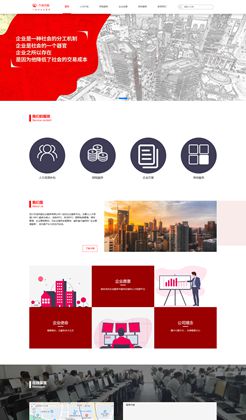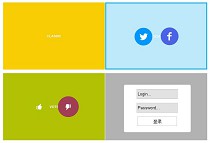如何实现Uniapp中的自定义按钮跳转
4392
随着移动互联网的发展,移动应用程序开发逐渐成为热门话题。而Uniapp作为一套跨平台开发框架,在移动应用程序的开发中备受欢迎。今天我们将介绍一下Uniapp开发中的自定义按钮跳转功能。
Uniapp自带的路由功能可以实现页面之间的跳转,但是如果需要在页面中添加多个自定义按钮跳转到不同的页面,该如何实现呢?下面我们将通过一个示例来介绍如何实现Uniapp中的自定义按钮跳转。
首先,在创建完Uniapp项目后,我们需要在pages文件夹中创建两个页面,分别为index和page1。其中index为默认页面,page1为需要跳转到的页面。
在index页面中,我们需要添加两个自定义按钮,分别为“跳转到page1页面”和“跳转到page2页面”。具体代码如下:
<template>
<view class="container">
<view class="btns">
<view class="btn" @click="toPage1">跳转到page1页面</view>
<view class="btn" @click="toPage2">跳转到page2页面</view>
</view>
</view>
</template>
<script>
export default {
methods: {
toPage1() {
uni.navigateTo({
url: '/pages/page1/page1'
})
},
toPage2() {
uni.navigateTo({
url: '/pages/page2/page2'
})
}
}
}
</script>
<style>
.container {
display: flex;
justify-content: center;
align-items: center;
height: 100vh;
}
.btns {
display: flex;
flex-direction: column;
align-items: center;
}
.btn {
margin: 10px;
padding: 10px;
border: 1px solid #ccc;
border-radius: 5px;
cursor: pointer;
}
</style>通过上面的代码,我们在页面中成功添加了两个按钮,并实现了点击按钮跳转到page1和page2页面的功能。
最后,在page1页面中,我们可以添加一个返回按钮,返回到index页面。具体代码如下:
<template>
<view class="container">
<view class="title">这是page1页面</view>
<view class="btn" @click="back">返回</view>
</view>
</template>
<script>
export default {
methods: {
back() {
uni.navigateBack({
delta: 1
})
}
}
}
</script>
<style>
.container {
display: flex;
justify-content: center;
align-items: center;
flex-direction: column;
height: 100vh;
}
.btn {
margin: 10px;
padding: 10px;
border: 1px solid #ccc;
border-radius: 5px;
cursor: pointer;
}
</style>通过上面的代码,我们在page1页面成功添加了返回按钮,并实现了点击按钮返回到index页面的功能。
综上所述,通过上面的示例代码,我们可以成功实现Uniapp中的自定义按钮跳转功能。这不仅可以为应用程序添加更多的交互性,还可以提高应用程序的用户体验。
本文网址:https://www.zztuku.com/index.php/detail-14091.html
站长图库 - 如何实现Uniapp中的自定义按钮跳转
申明:如有侵犯,请 联系我们 删除。








您还没有登录,请 登录 后发表评论!
提示:请勿发布广告垃圾评论,否则封号处理!!